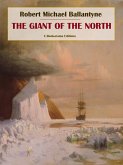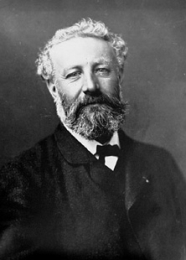"A Winter amid the Ice" (French: Un hivernage dans les glaces) is an 1855 short adventure story by Jules Verne. When his son Louis and members of the crew of the ship Jeune-Hardie, do not return from sea, Jean Cornbutte decides to refit the ship and go north to find them. Accompanying him on this trip is his son's fiancée, Marie, and the man who would be his son's rival for her affections, the ship's first officer, André Vaslin…
Hinweis: Dieser Artikel kann nur an eine deutsche Lieferadresse ausgeliefert werden.
Hinweis: Dieser Artikel kann nur an eine deutsche Lieferadresse ausgeliefert werden.










